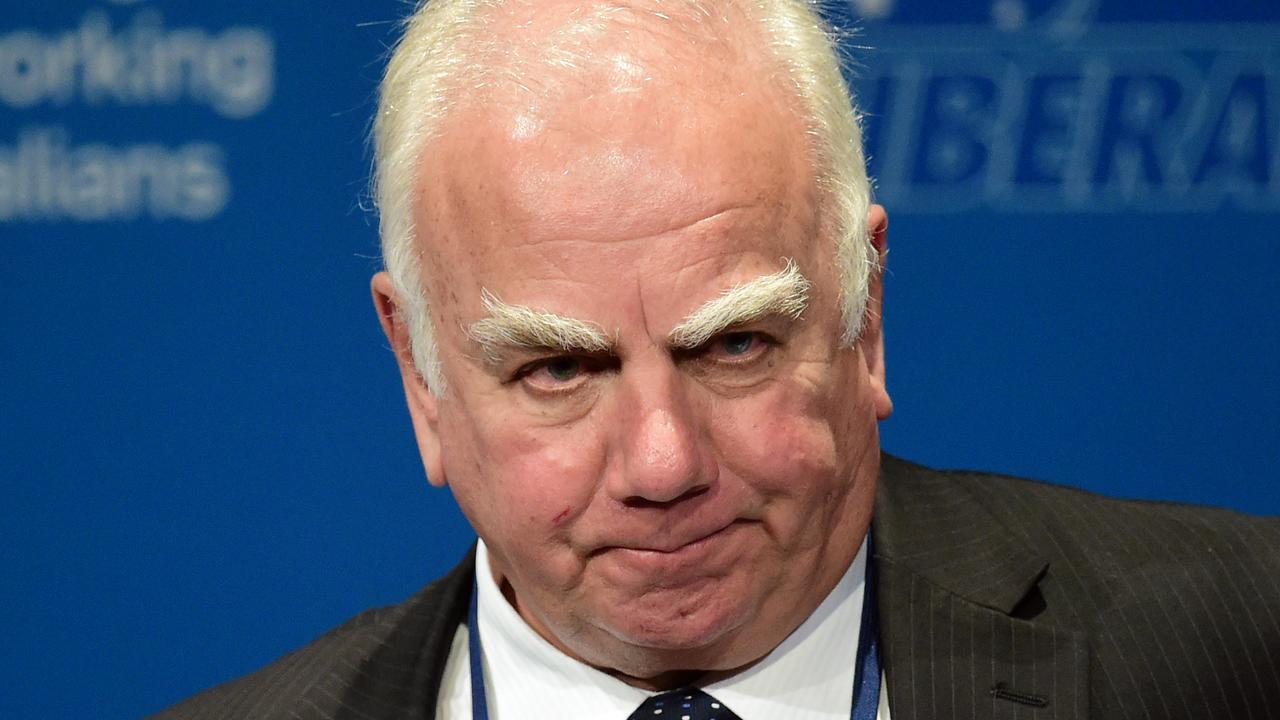Australian universities say they ‘did not get everything right’ after October 7 attacks
Australian universities have been caught off guard when anticipating just how big of an impact the Israel-Palestine conflict has had on the campus life of students, the University of Sydney’s top bosses say.
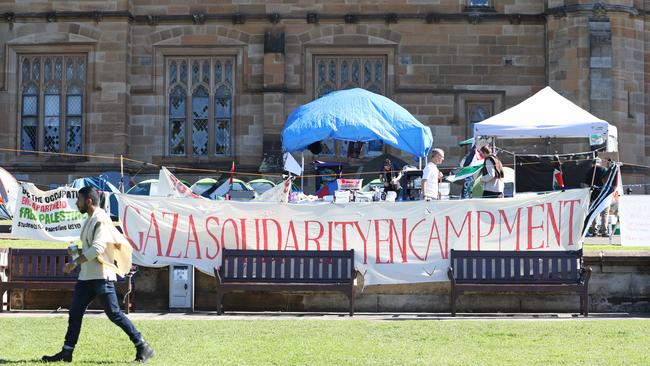
NSW
Don't miss out on the headlines from NSW. Followed categories will be added to My News.
Australian universities have been caught off guard when anticipating just how big of an impact the Israel-Palestine conflict has had on the campus life of students, the University of Sydney’s top bosses say.
The sandstone university’s chancellor David Thodey and vice-chancellor Mark Scott have admitted they did “not get everything right” when managing protests triggered by the October 7 attacks, including a pro-Palestinian encampment set up on the institution’s lawns.
The camp, which featured signs calling for people to “condemn Israel’s war crimes” and ended in June 2024, caused some Jewish students to feel unwelcome and unsafe while on campus attending classes.
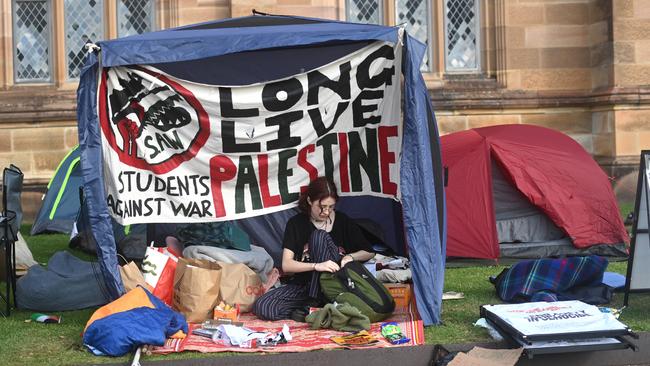
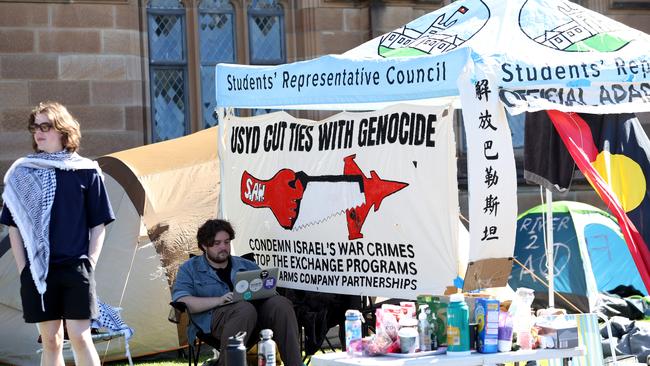
Mr Thodey and Mr Scott’s comments, featured in the university’s annual report released this week, outline how they now think they, along with other universities, were unprepared to manage social cohesion among students in relation to the Middle East conflict.
“Many universities around the globe did not fully anticipate the impact on their campus life of the ongoing conflict in the Middle East – and the University of Sydney was no different,” Mr Thodey and Mr Scott write.
“We did not get everything right as we responded to widespread protests triggered by the events of October 7 2023 and their aftermath and there are clearly differing views on our responses to certain events, particularly the encampment on our quadrangle lawns.
“We have committed to learn from these hugely challenging and complex events – and the experiences of other universities around the world – and to listen to those who would work with us to ensure our campuses are safe and welcoming for all.”
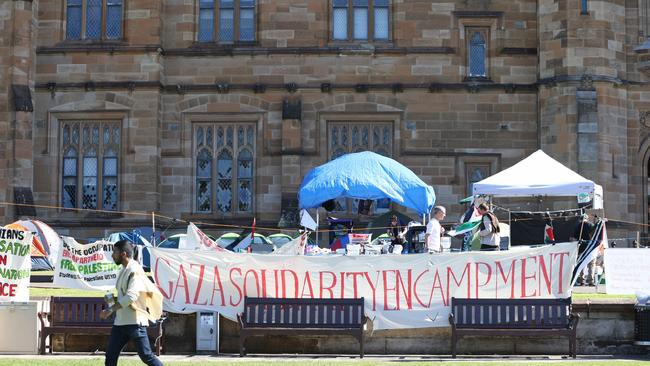
The university commissioned barrister Bruce Hodgkinson SC to do a review of its policies following the encampment’s ending.
In his findings, Mr Hodgkinson acknowledged that, while academic freedom and freedom of speech are “fundamental”, they are also “limited by the law”.
“While freedom of speech does not permit the use of hate speech or vilification, the report notes that difficulties arise when different parties have divergent views on the legitimate use of words or phrases because the intended meaning of the speaker has not been made clear,” the University of Sydney’s annual report said on the issue.
The annual report also states Mr Scott visited the bosses of universities in the US that also had student encampments in 2024.
The aim of the meetings were to “debrief on shared experiences and discuss future strategies”.
On Monday, Mr Scott emailed students to confirm the university was implementing five key revised policies in relation to campus cohesion.
He said the policies, which include a public comment and social media policy and also one on flags, seek to balance campus safety with freedom of speech.
A University of Sydney spokeswoman said: “Last year was a challenging year and our 2024 Annual Report clearly reaffirms our firm stance against antisemitism and the hard work to combat it”.
Do you have a story for The Daily Telegraph? Message 0481 056 618 or email tips@dailytelegraph.com.au
More Coverage
Originally published as Australian universities say they ‘did not get everything right’ after October 7 attacks





